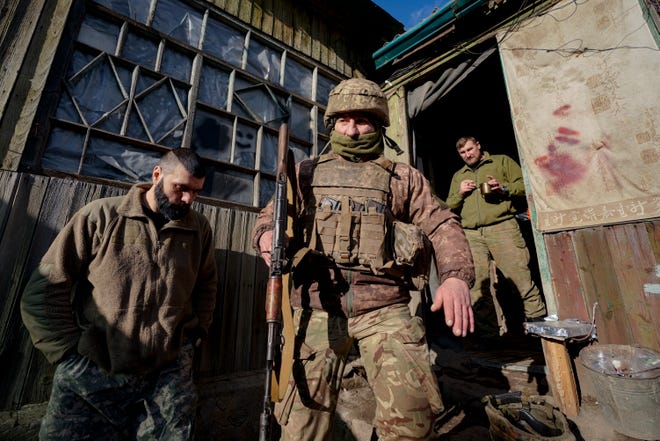The conflict between Russia and Ukraine has triggered the greatest security crisis on the European continent since the Cold War.
On Feb. 18, President Biden said, “We have reason to believe that Russian forces intend to attack Ukraine in the coming days … and will target Ukraine’s capital, Kyiv.” Most analysts believe that only the threat of severe economic sanctions will convince Russian President Vladimir Putin to back down.
Why does Putin want to conquer Ukraine?
Ukraine was a cornerstone of the Soviet Union until it voted overwhelmingly for independence in 1991. Losing Ukraine became the death knell for this failing superpower. The future of NATO is the center of the standoff. Moscow wants guarantees that Ukraine will be permanently banned from joining NATO.
To ward off a Russian invasion of Ukraine, the West’s main weapons are economic. Although Russia is a major military power, it has a relatively small economy. The U.S. Gross National Product is approximately 14 times greater than that of Russia.
Russia’s GNP even trails that of much smaller countries such as the United Kingdom, Italy and France. Two-thirds of the Kremlin’s exports and half of its budget revenues come from oil and gas.
Proposed sanctions on Russia
U.S. Senate Democrats have unveiled a sanctions bill to punish Russian officials, its banking institutions and its technology sector. Some of the proposed sanctions include the following:
- The White House has told the U.S. chip industry to expect new restrictions on exports to Russia
- Freeze assets and establish travel bans on key individuals
- Expand sanctions against state and private banks
- Disconnect the Russian financial system from international financial transfers
- Restrict Russia’s access to technology items used by its defense sector and also to parts used in many phones and appliances
- Halt the Nord Stream 2 natural gas pipeline between Russia and Germany.
When it comes to sanctioning Russia, the U.S. faces three recurring challenges: The sanctions tend to be imposed gradually; they are negotiated with reluctant allies; and the most impactful ones would also be economically costly to the West.
As a result, the Russia sanctions in place today are a watered-down compromise, designed to placate allies and minimize domestic costs.
Europe’s dependence on Russian energy supplies weakens the resolve of the West. Russia supplies Europe with almost 40% of its gas supply and 10% of its total primary energy supply.
In order for sanctions to work, Western allies must take unanimous action and be prepared to absorb economic pain. The problem is Europe’s dependence on Russian natural gas. German Chancellor Olaf Scholtz said, “We have to consider the consequences that this (sanctions) will have for us.”
Consequences for Western allies
For months Western allies have been at loggerheads over the proposed Nord Stream 2. These series of natural gas pipelines would run under the Baltic Sea from Russia to Germany. Nord Stream 2 pipeline meets the European Union’s demand for natural gas. U.S. officials have opposed Nord Stream because it would give Russia too much power over European gas supplies.
While imposing economic sanctions on Russia will hurt us, we need to recognize the economic and geopolitical instability that would result from a Russian invasion of Ukraine. On Jan. 29, Max Fisher wrote in the New York Times, “Russia’s ambition is to remake the European security order.”
Policymakers should be honest about how sanctions really work. Either they adopt small-scale, politically and diplomatically acceptable penalties, or they take measures that will make Russia feel enough pain to change course. The nature of the globalized economy is that we can’t insulate the rest of the world — including ourselves — from that pain, even if Russia will suffer substantially more.
Russia may have the advantage on the battlefield in Ukraine, but the West has vast power over Russia’s economy. It should be prepared to use it — and also be prepared for the costs.
Originally published in the Sarasota Herald-Tribune




